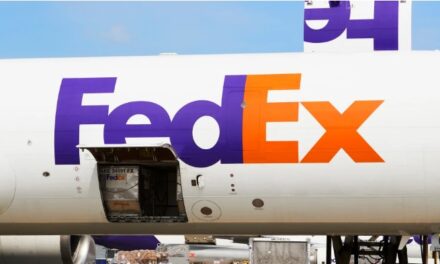
UPS says USPS does not need greater commercial freedom sought in reform
From TRAFFIC WORLD, August 6th, 2001
By KRISTIN S. KRAUSE
UPS says USPS does not need greater commercial freedom sought in reform Copyright 2001, Traffic World Magazine Never mind that postal reform has gone nowhere in Congress for more than seven years. United Parcel Service is confident that this is the year of postal reform and happily predicts the end result will be more pricing oversight and very little commercial freedom for the U.S. Postal Service until it can figure out how to manage its monopoly business and stop hemorrhaging money.
The USPS ranks postal reform as a top priority, but UPS says the post office’s motives are suspect. “The Postal Service is actively trying to create a crisis,” UPS spokesman Tad Segal said at a Transportation Table luncheon in Washington, D.C., July 27. The Postal Service claims that reform is the only way it can maintain universal service, a claim Segal views as more of a threat than reality.
The Postal Service spent much of the early part of the year declaring a fiscal crisis and emphasizing the urgent need for reform. Between November and July, USPS revised its fiscal 2001 projected losses four times, going from $500 million to close to $3 billion and back to about $1 billion. “There was a lot said about George Bush’s fuzzy math, but this is a hairball,” said Segal.
The ineptitude that USPS showed in its budget predictions would never occur in the private sector, said Segal, and was probably nothing more than a scare tactic to get Congress on the reform bandwagon.
This year postal reform was taken from the now-defunct Postal Service subcommittee and given higher priority within the government reform committee chaired by Rep. Dan Burton (R-Ind.). But the momentum that move produced has dissipated recently.
“The Postal Service has a monopoly that provides more than 85 percent of its revenue. We are all for fair competition, but as long as the Postal Service maintains its monopoly business, it can’t cross-subsidize its other products with revenue from First Class mail.” Segal said the Postal Service has a long list of advantages over private companies, including immunity to parking tickets and access to extremely low-interest capital. Yet USPS spends $300 million a year on marketing and advertising – more than that spent by UPS and FedEx Corp. combined, he said.
UPS’s long-running battle with the USPS is similar to Big Brown’s constant conflict with Germany’s Deutsche Post. UPS has, with some success, pressured the European Commission to restrict Deutsche Post’s activities. Segal said it would be a big mistake to allow USPS to go the way of the German post office, which has bought up several private companies.
“When you look at Deutsche Post as a model of a progressive postal service, actually the exact opposite is true. It continues to behave like a monopoly and has abused its position on countless occasions,” he said.
There are two camps in the postal reform issue. The first wants to see the Postal Service afforded more commercial freedoms over pricing and products.
The other would like to see it concentrate on its government mandate for universal service. UPS obviously falls into the second camp. “We support a strong and vibrant Postal Service and we will support them to that end.”
TRAFFIC WORLD, 06th August 2001












